
Past Award Winners
Please use the filters below to view the recipients from a specific year
Frank McCormick
Frank McCormick

The 2018 Centenary Award was presented to Professor Frank McCormick from the University of California San Francisco Helen Diller Family Comprehensive Cancer Center. Frank has been a leader in the field of RAS oncogene function and regulation for over 30 years, having made a large number of seminal discoveries about the signalling pathway regulated by the RAS protein. His identification of RAS GAP marked the start of the rush to understand the regulation of RAS proteins and their normal role within the cell. With the identification of the NF1 protein as a member of the GAP family this led to fundamental understanding of Neurofibromatosis type I. Frank has also contributed very important observations about the downstream pathways regulated by RAS, including the RAF/MAPK pathway and PI3K signaling. Frank has also been hugely influential outside of his own lab, he founded ONYX Pharmaceuticals, a company dedicated to developing new cancer therapies. In addition to all this, Frank has also been President of the AACR and made many other contributions to the cancer research community at the highest level.
Of winning the Centenary Award, Frank said “I am absolutely thrilled to receive this award. It means a great deal to me to be recognized by my peers, especially as I was trained as a biochemist in the UK and attended many outstanding Biochemical Society meetings in which I made connections and gained new insights that have affected my entire career.”
Read his review article 'Progress in targeting RAS with small molecule drugs' published in the Biochemical Journal.
Matthew Johnson
Matthew Johnson
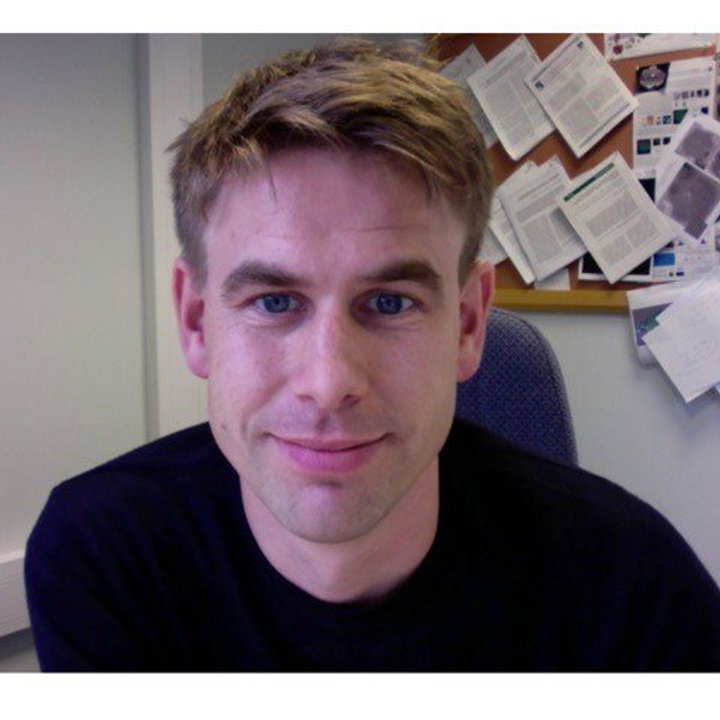
In 2018 the Colworth Medal was awarded to Matthew Johnson from the University of Sheffield. Matthew is a plant biologist with an interest in photosynthesis and respiration. Matthew’s research focuses on the organization and adaptability of thylakoid membranes, which house several major pigment-protein complexes involved photosynthetic electron transport including photosystem II, cytochrome b6f, photosystem I and ATP synthase. A major accomplishment of this work has been the development and application of affinity-mapping atomic force microscopy, which uses a specially functionalised probe to ‘recognise’ only a specific type of protein in the membrane. Using this new technique, Matthew discovered novel plastoquinone diffusion nanodomains that facilitate electron transport between photosystem II and cytochrome b6f complexes in spinach thylakoid membranes. This discovery explains how plants avoid a diffusion limitation of electron transport in the severely protein crowded membrane, ensuring the efficiency of photosynthesis.
Read Matthew's article published in the Biochemical Journal - Metabolic regulation of photosynthetic membrane structure tunes electron transfer function.
Of winning the Colworth Medal, Matt said “I’d like to thank the Biochemical Society for awarding me this prestigious honour. It is incredibly humbling to be recognised alongside the many great scientists who have previously won the award, including Sir Hans Kornberg, a personal scientific hero of mine. I would also like to acknowledge the inspirational senior scientists who have mentored me and the hardworking students who have supported my work. Without their encouragement and dedication this achievement wouldn’t have been possible.”
Matthew presented his award lecture at the Society conference ‘The Dynamic Cell III’ on 19-21 March 2018 at the Manchester Conference Centre.
Wojciech Galej
Wojciech Galej
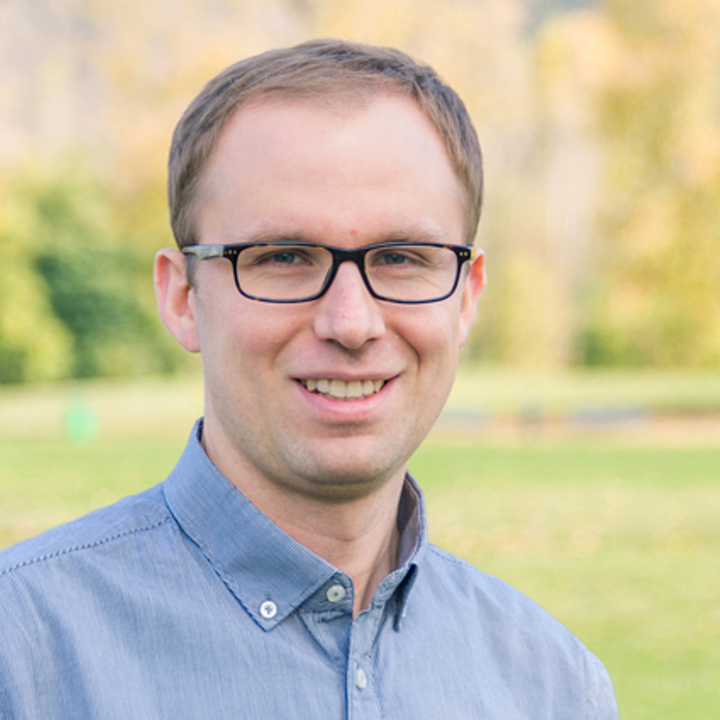
The 2018 Early Career Research Award for Molecular Structure and Function was awarded to Wojciech Galej from the European Molecular Biology Laboratory, France. Wojciech has made outstanding contributions to the understanding of the molecular mechanism of pre-mRNA splicing through his structural analysis of the spliceosome and its component using X-ray crystallography and cryo-electron microscopy. He determined the crystal structure of the Prp8 protein, the largest and most conserved protein in the spliceosome. This protein plays crucial roles in organising the RNA catalytic core of the spliceosome and its structure also provided important insight into the evolutionary origin of the spliceosome. Wojciech played a key role in the structure determination of the fully assembled, 44-subunit catalytic spliceosome using single particle cryo-electron microscopy.
Read Wojciech's article published in Biochemical Society Transactions - Structural studies of the spliceosome: past, present and future perspectives.
Of winning the Early Career Research Award for Molecular Structure and Function, Wojciech said “I am absolutely thrilled and honoured to receive this award. What makes me particularly happy is that my research was recognized and appreciated by the Award Committee. I am very grateful to my PhD advisor and a long-time mentor Dr. Kiyoshi Nagai and all my colleagues at the MRC Laboratory of Molecular Biology for their continuing support.”
Yasin Dagdas
Yasin Dagdas
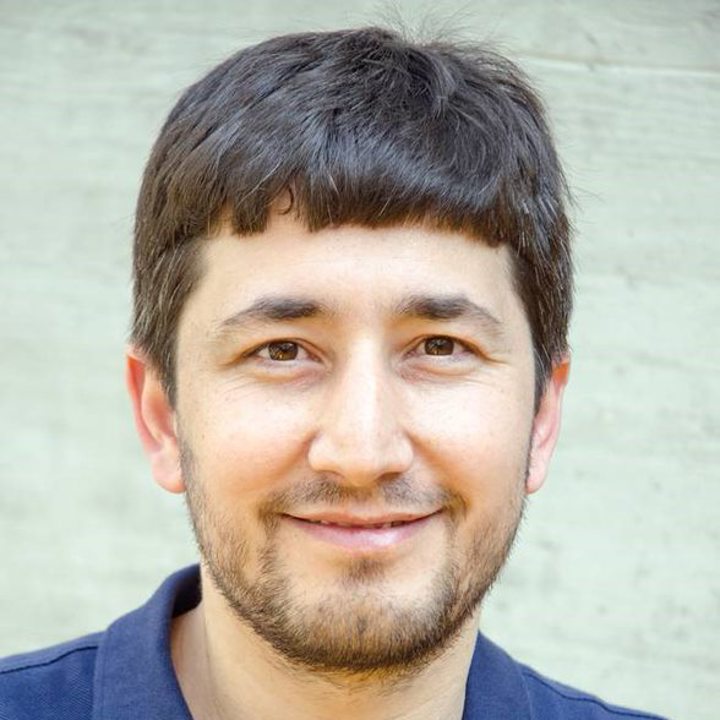
The 2018 Early Career Research Award for Cells was awarded to Yasin Dagdas from the Gregor Mendel Institute-Vienna. His work on perturbation of selective autophagy by the Irish potato famine pathogen provided crucial insights on selective autophagy in plants. At the Gregor Mendel Institute, he is combining evolutionary analyses with mechanistic tools to dissect selective autophagy at a cell type specific resolution.
Of winning the Early Career Research Award in Cells, Yasin said “I am a very pleased, honoured and humbled to receive this award. I owe this award to my amazing mentors Sophien Kamoun and Nick Talbot and to the colleagues in their labs. I also would like to thank the Gatsby Charitable Foundation and the Halpin Trust for supporting my research at The Sainsbury Laboratory and University of Exeter, respectively.”
Yasin presented his award lecture at the 83rd Harden Conference: ‘Autophagy – from molecules to disease II’ on 3-6 June 2018 at Chesford Grange, Warwickshire, UK.
Job Dekker
Job Dekker
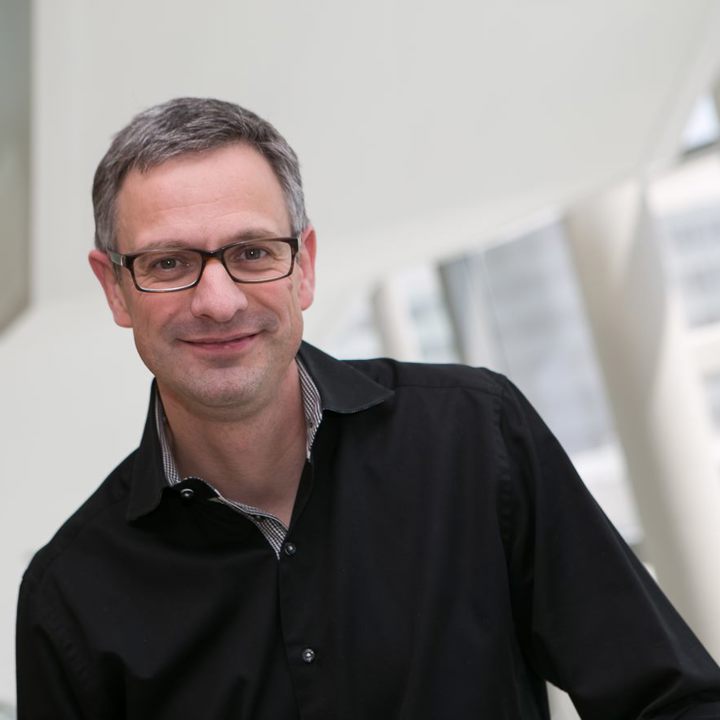
The inaugural International Award was awarded in 2018 to Job Dekker from the Howard Hughes Medical Institute and the University of Massachusetts Medical School. Job introduced the concept that matrices of chromatin contact frequencies can be used to determine the three-dimensional structure of chromosomes. Following this, Job invented the chromosome conformation capture (3C) technology to obtain such matrices and solved the first structure of a yeast chromosome in 2002.
Since then, his group has pioneered development and application of a series of molecular, genomic and computational approaches, such as 5C and Hi-C to map and analyze the three-dimensional folding of genomes at Kb resolution. His work had led to new insights into the internal organization of chromatin fibres, the formation of chromatin looping interactions involved in long-range gene regulation, the organization of the interphase nucleus, the structure of metaphase chromosomes, and the general folding principles of complete genomes. Recently his group has started to use 3D genome folding data for de novo genome assembly.
Of winning the International Award, Job said: “I am truly delighted to have been selected for the International Award. This really honours the work of all my team members, collaborators, and colleagues that is starting to reveal how our genomes are folded.”
Job presented his award lecture at the 24th IUBMB Congress Seoul, Korea on 4-8 June 2018.
Anne Bertolotti
Anne Bertolotti
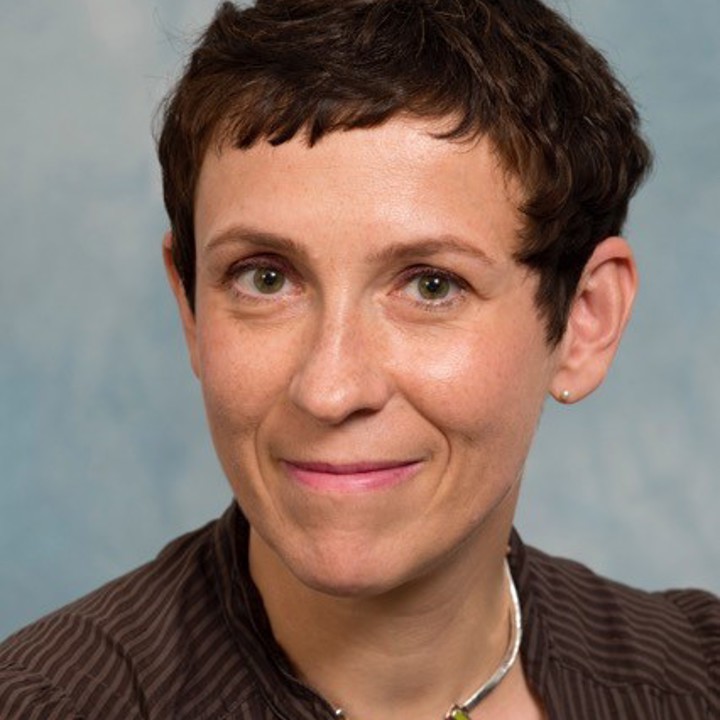
The 2018 GlaxoSmithKline Award was awarded to Anne Bertolotti from the Laboratory of Molecular Biology of the Medical Research Council in Cambridge. Anne has discovered major components of protein quality control systems in cells. These systems represent the cellular defence against misfolded proteins that accumulate in devastating diseases, such as Alzheimer’s, Parkinson’s or Huntington’s disease.
Anne has made outstanding contributions to our understanding of the molecular mechanisms underpinning neurodegenerative diseases and discovered strategies to enhance protein quality control systems for possible treatment of neurodegenerative diseases. One of the strategies consists of selective inhibition of a phosphatase, an important discovery because phosphatases were thought to be undruggable. The discovery of selective phosphatase inhibitors from Anne’s lab represents a huge advance for basic and medical science with a transformative potential for a group of diseases for which no treatment exists so far.
Read Anne's article published in Biochemical Society Transactions - The split protein phosphatase system.
Of winning the GlaxoSmithKline Award, Anne said “The award came as a surprise, on an early morning whilst I was visiting a dear friend and colleague in San Francisco. It is a great honour to join the list of distinguished awardees and a wonderful feeling to have our work recognized in this way. The work recognized by the award is the result of a team effort and my heart is with my lab members, past and present who have fearlessly joined me to explore the unexplored.”
Anne presented her award lecture at the Society conference ‘The Dynamic Cell III’ on 19-21 March 2018 at the Manchester Conference Centre.
Dee Scadden
Dee Scadden

The inaugural Teaching Excellence Award was awarded in 2018 to Dee Scadden from the University of Cambridge. Following a successful research career that made a significant contribution to understanding the role of ADARs and RNA editing in mammalian cells, Dee has recently focused on developing innovative online teaching tools that aim to support learning within various undergraduate courses in Biochemistry. Use of such resources will increase access, engagement and flexibility for students beyond the conventional classroom, thereby enhancing teaching and learning. They will also provide opportunities for academics to explore new teaching styles to enrich learning.
Of winning the Teaching Excellence Award, Dee said “I am absolutely delighted to receive the Teaching Excellence Award, and am grateful to my colleagues for their support. The opportunity to engage closely with students and to develop teaching resources that support and encourage learning is a real privilege.”
Dee presented her Award lecture at the Society training event ‘Evolving molecular bioscience education’ on 12-13 April 2018 at the University of Chester, UK.
Michael Wakelam
Michael Wakelam
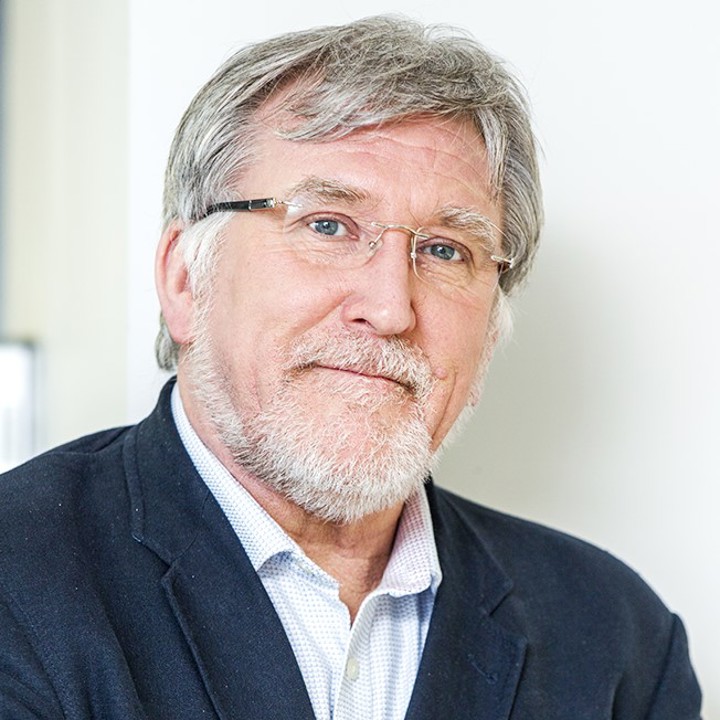
In 2018 the Morton Lectureship was awarded to Michael Wakelam from the Babraham Institute, Cambridge. Michael’s research focuses upon understanding the role and regulation of lipid signalling pathways in inflammation and cancer and his lab has a major focus upon the use and development of lipidomics methodologies in determining the functions of individual lipid molecular species. Michael’s work to develop ways of assessing the acyl-chain composition initially using HPLC and TLC techniques and subsequently with mass spectrometry were amongst the first to allow molecular analysis of lipid sidechains. These studies permitted the understanding of how these critical parts of the lipid molecule contribute to cellular function. Michael’s group have produced an extensive body of work describing the regulation, behaviour and cellular functions of phospholipase D. Michael also identified how small GTPases such as Ras regulate phospholipase C enzymes, and his lab have continued to produce an important portfolio of work detailing how this family of enzymes is regulated. Michael is also expert at lipidomics of phosphoinositides, important signalling molecules that cannot be studied easily by conventional mass spectrometry. Michael’s expertise in lipidomics has allowed several high-profile collaborative studies to be achieved, in both basic and translational research that have informed our understanding of lipid metabolism in cancer and PI 3-kinase signalling in health and disease.
Of winning the Morton Lectureship, Michael said “I am delighted and surprised to have been awarded the Morton Lectureship by the Biochemical Society. I am extremely grateful for the efforts of the many excellent scientists who have contributed to the success of my laboratory over the years. Additionally I am proud to join the list of great lipid scientists who have been previous recipients of this award.”
Michael presented his award lecture at the Society conference ‘Structure and mechanism of membrane proteins’ on 2-3 August 2018 at Aston University, UK.
Neil Hunter
Neil Hunter

The 2018 Keilin Memorial Lecture was presented to Neil Hunter, who holds the Krebs Chair of Biochemistry at the University of Sheffield. Neil’s research on energy and electron transfers in microbial photosynthesis recently culminated in a complete structural and functional description of an energy-transducing membrane, from collecting sunlight to charge separation, quinone migration, generation of a proton gradient, and finally catalysis by the ATP synthase. Neil has also made major contributions to understanding the biogenesis of the haem, bacteriochlorophyll, chlorophyll and carotenoid cofactors, and their assembly into energy, electron and proton transfer complexes…
Read Neil's article published in the Biochemical Journal - Dissecting the cytochrome c2–reaction centre interaction in bacterial photosynthesis using single molecule force spectroscopy.
Of winning the Keilin Memorial Lectureship, Neil said “I am delighted and honoured to be the recipient of the Keilin Medal and Lecture, particularly because I join a list of eminent recipients of this award. I would like to thank past and present members of my research group and my many collaborators for their contributions over the last thirty three years.”
Neil presented his award lecture at the 84th Harden Conference: Single- molecule bacteriology on 9-12 September 2018 at Lady Margaret Hall, Oxford, UK.
Stefan Knapp
Stefan Knapp

The inaugural Industry and Academic Collaboration Award was awarded in 2018 to Stefan Knapp from the Institute of Pharmaceutical Chemistry, the Buchmann Institute for Molecular Life Sciences at Frankfurt University as well as at the Structural Genomics Consortium at Oxford University. His research team made a major contribution to the understanding of structural mechanisms regulating signalling molecules such as protein kinases, phosphatases, acetylation dependent reader domains of the bromodomain family and the exploitation of this knowledge for the development of highly specific inhibitors. In the framework of a large collaborative network involving many academic research groups and industry he pioneered the development of protein interaction inhibitors targeting bromodomains that function as lysine acetylation dependent reader domains of the epigenetic code as well as highly specific allosteric inhibitors modulating kinase function.
Of winning the Industry and Academic Collaboration Award, Stefan said “I am extremely honoured and delighted to receive the 2018 Biochemical Society Industry and Academic Collaboration Award. I would like to use this opportunity to thank the outstanding team of scientists in academia and industry that I had the privilege collaborating with.”
Stefan presented his award lecture on 10 December 2018 at the University of Sussex.
Read Stefan's article published in the Biochemical Journal - Lessons from LIMK1 enzymology and their impact on inhibitor design
Laurence Pearl
Laurence Pearl

